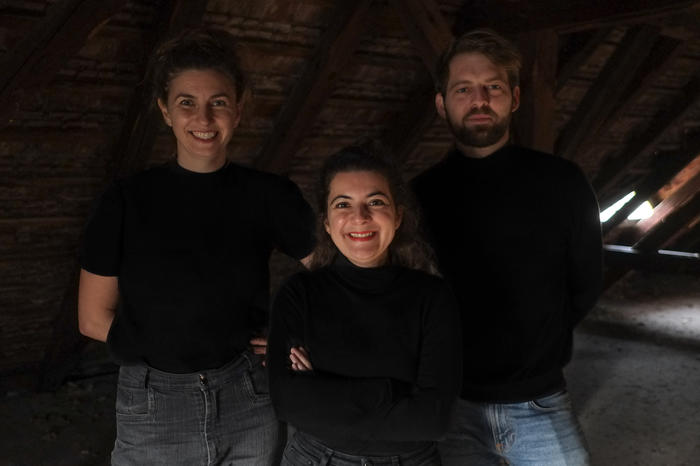Research Groups
Three research groups represent the core of the Berlin Center for Interdisciplinary Peace and Conflict Research.In analogy to the center's epistemic goals and commitments, the groups concentrate on three complementary fields of research:
- First, the explore the implications of transnational interdependencies for contemporary questions of conflict, peace and security peace, their influence on the dynamics of cross-border conflict constellations, and their consequences for local, national, and international regulation.
- Second, they contribute through process-oriented and comparative analyses to a comprehensive explanation of the causes, dynamics and transnational interdependencies of (non)state violence in different spatial constellations.
- Third, they reflect on the conceptual and methodological challenges faced by interdisciplinary peace and conflict research as a consequence of the transnationalisation of conflict constellations and violent disruptions by (non)state actors. This implies interrogating existing practices of knowledge production about conflict, violence and peace (including limits of knowledge, benefits and risks of peace research, positionality of researchers), a subscription to the critical paradigm and a commitment to basic research.
Each research group covers multiple facets of these thee complementary fields of research under the direction of an experienced postdoc. The areas covered by the groups address some of the most central desiderata of social science peace and conflict research. At the same time, they offer points of connection with other disciplines, including legal studies, area studies, political theory, communication studies and computational science.
The junior research group Transnational Conflicts under the direction of Dr. Mariam Salehi aims to analyze the transformation of transnational conflict constellations and their political, social, economic, and legal interdependencies. The goal is to identify the changing shapes and dynamics of conflicts that span across geographic borders as well as their consequences for conflict regulation. Aside from the characteristics of and shifts within contemporary conflicts, the research group will also explore how conflict constellations are spatially (regionally and globally) and temporally (historically and procedurally) interwoven and how they are transformed by global power shifts.
In terms of research foci, the research group is going to investigate transnationalised struggles for global justice. The focus is on researching global knowledge orders about conflict and violent rule and how notions of justice are shaped. Therefore, the group will analyse transnational conflicts and their regulation in different contexts, entanglements of knowledge production and transfer, and understandings of transnational dynamics of conflict and violent rule.
As part of this research programme, the group will work on the project "Knowing Violence, Shaping Justice: Technocratic and Anticolonial Worldmaking". The project analyses the interplay between (supposedly) technocratised and emancipatory struggles for justice. It is based on an interpretative and processual research approach. The aim is to develop an integrated analysis of transnational entanglements in the struggle for global justice through empirical research on interlinked case studies.
The research group Radical Spaces headed by Dr. Jannis Julien Grimm explores the multifaceted dynamics of processes of social mobilization that are accompanied by (non-)state violence. At the core of its three-year research program are the conditions, forms, and dynamics of radical politics as well as the comparative investigation of contentious politics and patterns of their radicalization and repression. Radical spaces are not narrowly understood as breedings grounds for political violence but as emergent arenas of contentious interactions that radically break with common expectation sand previous patterns of thinking and doing politics. The focus is thus on political subjectivation processes and interaction dynamics between authorities and non-state actors that promote or constrain specific action strategies and condition whether social actors turn violent.
Through its work, the research group aims to contribute to a comprehensive theorization of the connection between conflict dynamics and the culturally mediated interpretive struggles over the viability and legitimacy of different contentious repertoires. On the basis of several empirical case studies, the project aims to develop a conceptual toolkit that can be used to identify and evaluate escalation tendencies and radicalization potentials during waves of protest at an early stage. To begin with, the research group will empirically focus on exploring several cases of mass mobilization and contentious politics in West Asia and North Africa within the framework of the project "Discursive conditions of radical politics: Dynamics of (non)violent escalation during the second wave of the Arab Spring."
Under the direction of Dr. Hannah Franzki, the junior research group Blurring Boundaries examines existing concepts, terms and methods of peace and conflict studies with regard to their analytical usefulness as well as their social risks. The research project "Transnational Corporations, Violence and Responsibility: Drawing Boundaries in Transnational Law" asks how the strongly legal "business and human rights" approach influences our thinking and speaking about violence and responsibility in the context of transnationally operating corporations. The project combines genealogical conceptual work with empirical research on three transnational conflicts linking Europe and Latin America and aims to intervene in both the academic discussion and the political debate on the topic.
